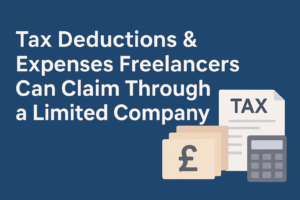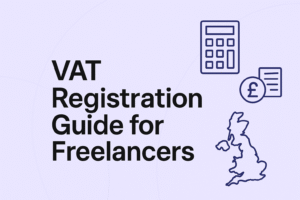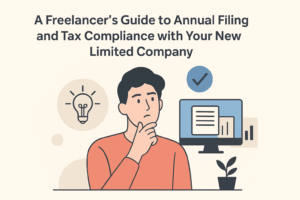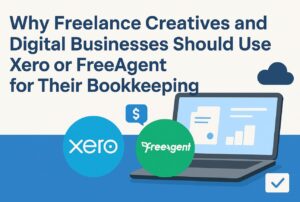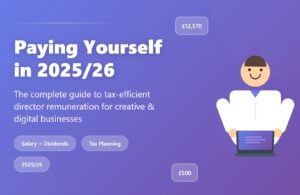
What Are Dividends and How Are They Taxed? A Guide for Small Business Owners
- Tax
- Quick Read
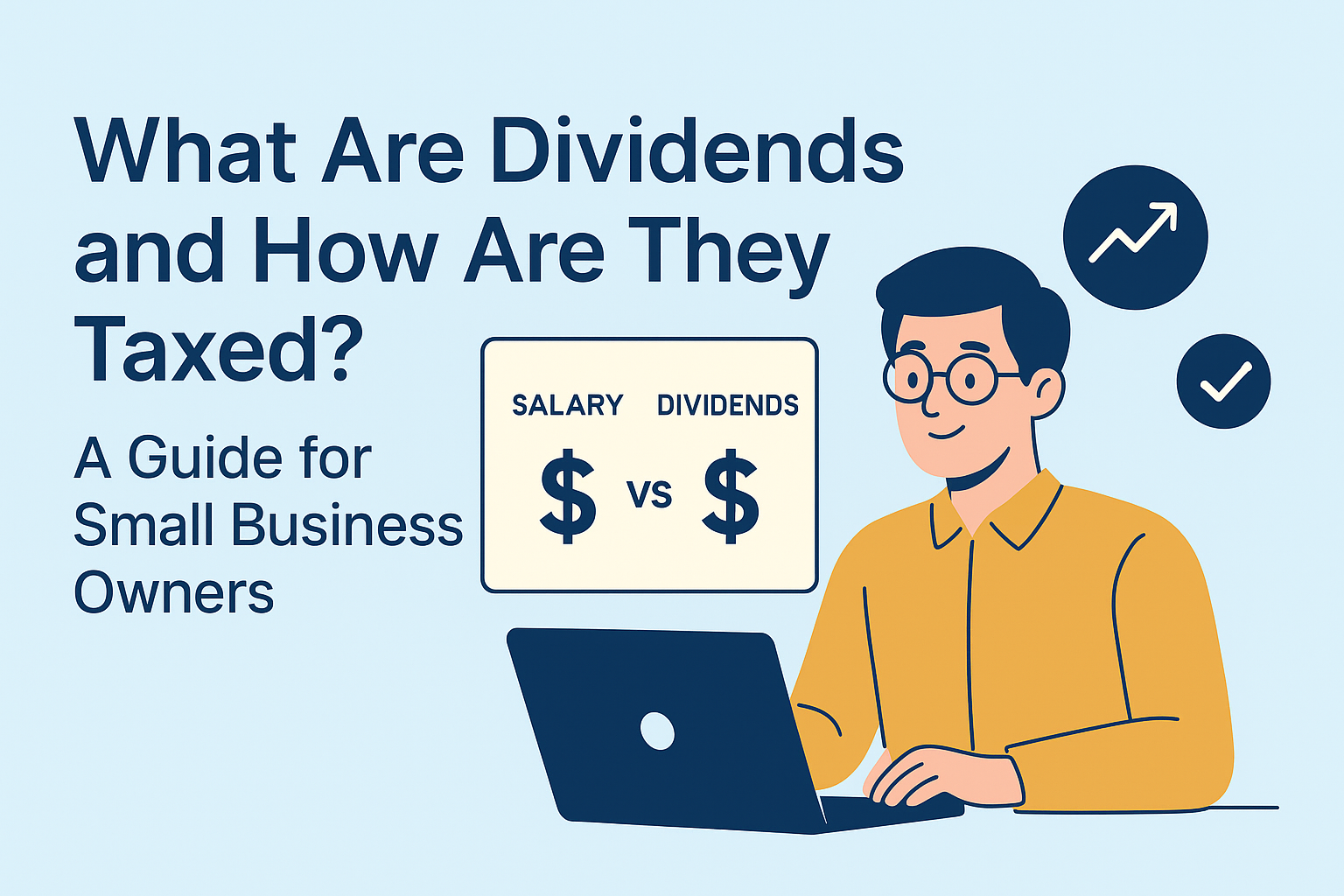
What Are Dividends and How Are They Taxed? A Guide for Small Business Owners
- Recent Thinking
- By Mike Smith
- Last updated on
Understanding Dividends: A Quick Overview
If you run your own limited company, you’ve probably heard the term “dividends” thrown around. But what exactly are they?
Dividends are payments made to shareholders from a company’s post-tax profits. In other words, once your business has paid Corporation Tax on its profits, any remaining funds can be distributed to shareholders (often you, as the business owner) as dividends.
For many small business owners — dividends can be a more tax-efficient way of paying yourself compared to taking all your income as salary.
How Dividends Work in Practice
Here’s a simple example:
- Your company earns £80,000 in profit.
- It pays Corporation Tax at ‘say’ *19%* (£15,200), leaving £64,800.
- You decide to distribute £40,000 as dividends.
- You pay personal dividend tax on that amount based on your income tax band.
Unlike salaries, dividends don’t attract National Insurance Contributions (NICs), which is one of the key reasons they’re popular with limited company owners.
**This example is simplified to make the concept clear. In rality, companies with profits above £50,000 may pay a blended Corporation Tax rate between 19% and 25%, depending on their exact profit level.
Dividend Tax Rates 2025/26
The UK dividend tax rates (at time of writing) are lower than standard income tax rates, though the tax-free allowance has reduced in recent years. Here’s how they currently look:
| Tax Band | Dividend Tax |
| First £500 | 0% |
| Basic Rate | 8.75% |
| Higher Rate | 33.75% |
| Additional Rate | 39.35% |
⚡ Tip: Dividends are taxed after your salary and other income. So your overall tax band matters — especially if you combine salary and dividends strategically.
Dividends vs Sole Trader Income
It’s important to understand how dividends compare with being paid as a sole trader (or through self-employment) if you are just getting started or are considering the best structure for your small business:
| Feature | Limited Co (Dividends) | Sole Trader (Income) |
| How you’re paid | Salary + Dividends | All business profits |
| Tax before payment | Corporation tax paid by the company | No corporation tax – all profit is personal income |
| Personal tax | Dividend tax at lower rates and no NIC | Income tax rates plus NIC |
| Admin | Must run payroll and maintain dividend history | Simpler – just Self Assessment (subject to MTD changes soon) |
| Tax planning | Flexible – can mix salary and dividends for efficiency | Less flexible- taxed on all profits even if not drawn |
For many freelancers and small business owners, operating as a limited company and taking a combination of a small salary + dividends can result in lower overall tax compared to taking all income as a sole trader.
Key Things to Remember About Dividends
- You can only pay dividends from post-tax profits
- Timing matters – declaring dividends at the right time can help manage your tax position
- HMRC expects dividends to reflect share ownership
Which Option is Best for You?
Choosing between operating as a sole trader or a limited company with dividends depends on:
- Your income level
- Your plans for business growth
- How much admin you’re comfortable with
- Whether tax efficiency is a top priority
For many freelancers and small business owners, incorporating and using dividends can reduce your tax bill and give you more flexibility — but it’s essential to get it right.
Gain peace of mind. Free up more time. Pay less tax.
We’re ready when you are.
Credits and thanks: HMRC
How can we help?
👉 Get in touch with us today if you’d like tailored support with annual filing, tax compliance, or managing your small business finances. Our team of accountants are here to help. At CORNEL Accountants we offer our small business clients an all-inclusive and fixed fee basis for any work we do, always agreed up-front. Why not take a look at our typical packages and get in touch for an initial discovery call and explore how we can help you?
Disclaimer:
The content included in this blog post is based on our understanding of tax and company law at the time of publication. It may be subject to change without notice and may not be applicable to your circumstances, so should not be relied upon. You are responsible for complying with tax law and should seek independent advice if you require further information about the content included in this post or guide.





